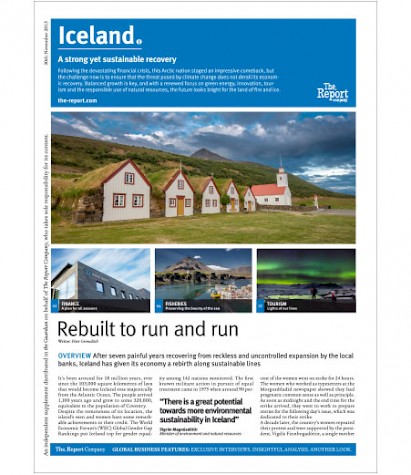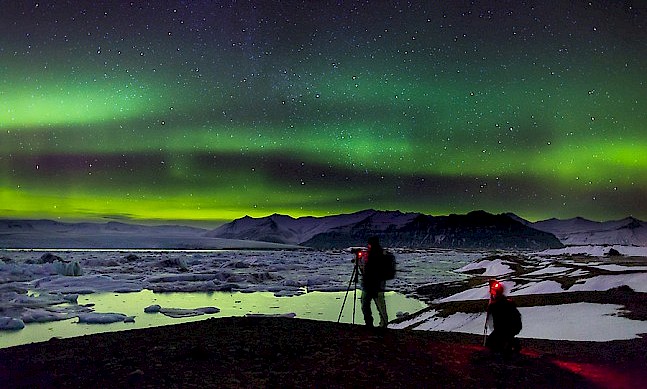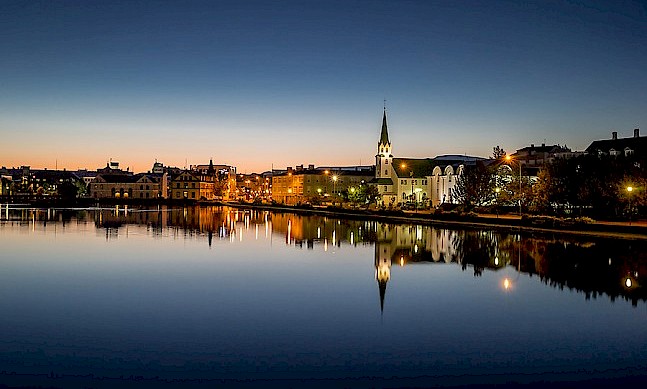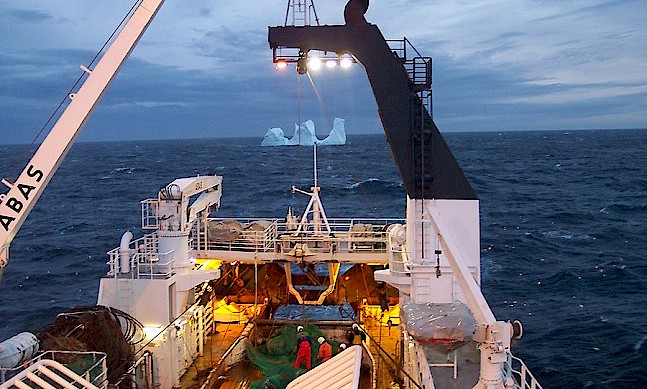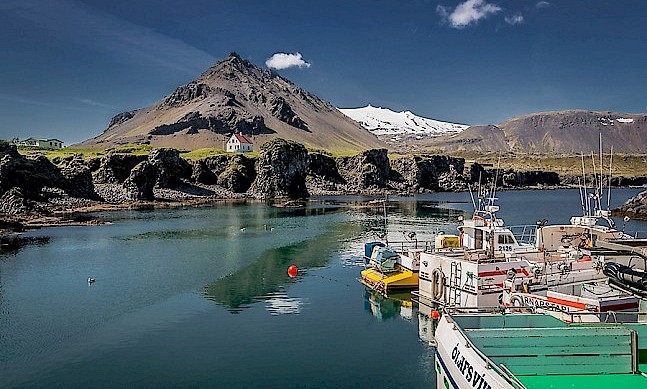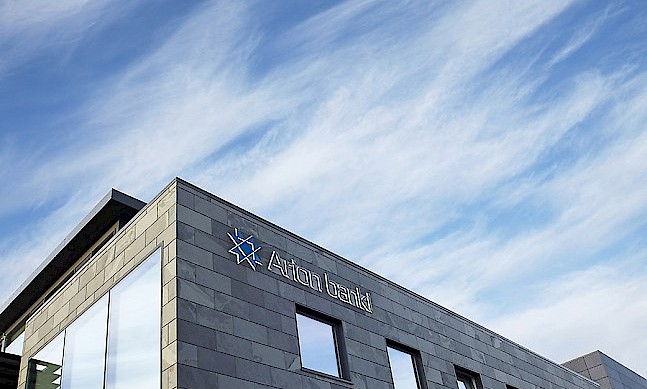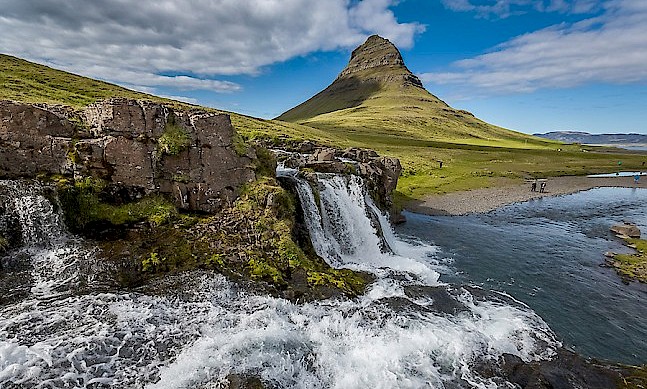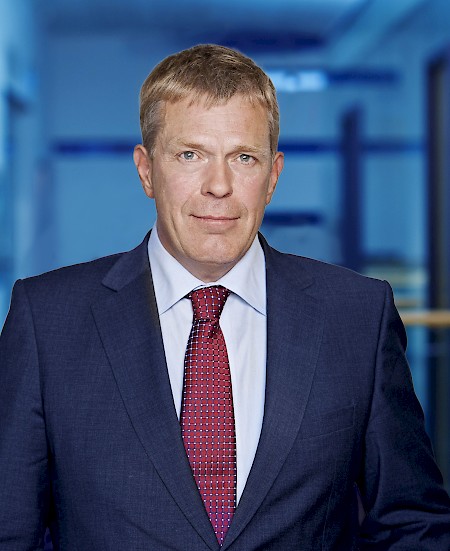 Höskuldur H. Ólafsson. Photo: Arion Bank
Höskuldur H. Ólafsson. Photo: Arion Bank
Arion Bank was set up as a state-owned entity after the collapse of Kaupthing Bank in 2008, taking control of the old bank's domestic assets and liabilities. Now majority owned by Kaupthing creditors, it offers comprehensive financial solutions to the retail and corporate sectors, and played an important role in getting Icelanders back on their feet after the crisis. Höskuldur H. Ólafsson, the bank’s CEO, spoke to The Report Company about how the bank looks today.
The Report Company: Can you give us a brief overview of the bank?
Höskuldur H. Ólafsson: The bank was created at the end of 2008. It was built on the collapse of Kaupthing Bank, which was the biggest bank in Iceland. In the beginning it was taken over by the state, like all the three big banks. By the end of 2008, it was agreed that the creditors of the collapsed Kaupthing bank would acquire an 87 percent share in this bank. They are the biggest shareholders today, with the state holding 13 percent.
I started here in 2010, and it was a bit of a strange situation; we had a new, very troubled bank. Fifty-six percent of the loan portfolio was non-performing, so it was really a very difficult situation. The bank was basically without any sort of direction or strategy. In 2010, we went about formulating a strategy for the bank going forward, giving the organisation some sort of a purpose apart from simply survival. We made a long-term plan that was aimed at building a robust, competitive bank which would eventually find a new ownership, and then we made a short-term plan which was simply to get our customers back on their feet. If you have 56 percent of your loan portfolio that is underperforming, that means that your customers have big problems that need to be addressed.
By 2011, we had progressed in a remarkable manner, both within the bank and for the financial sector as a whole. More sort of normal banking activities started towards late 2012. By 2014, we were able to start focusing on more regular business, streamlining our operations and working on more long-term objectives and plans, which involve operating a universal bank dedicated to serving industry and individuals. We made quite a significant change to the bank; Kaupthing bank was very much an international, fast-growing investment bank. We set about changing this bank into a much more balanced institution. Basically, our loan portfolio today is 50 percent individuals and 50 percent corporates. When we started, it was only around 25 percent individuals.
Today, we have established ourselves as the biggest mortgage lender apart from the state housing fund, and we put a heavy emphasis on that. We have continued also to strengthen our position in corporates. Our legacy was very strong in big corporates, but we have used this time to deepen our portfolio and strengthen our position amongst smaller companies.
We also realise that this is not going to be the same bank that it was before the crash. When the crash happened there were positive aspects, one of which was that there were tremendous resources available to do new things. This bank basically decided to be the bank which is progressive and innovative, and a bank that supports its customers in that respect.
TRC: How has the bank innovated?
HHO: We have been a key contributor in getting the stock market back on its feet. We did the first listing here after the crash, and I think we have managed more than half of all the listings that have taken place since then. In 2011, when the property market was frozen in terms of private properties for individuals, we introduced a new product which kick-started the market. This was very successful, and has been progressing ever since.
We also decided to start what we call Startup Reykjavík, which is a kind of accelerator for new ideas. Essentially, we invite people with good ideas to apply, and we buy shares in these ideas and then we provide them with facilities for 10 weeks and access to many mentors, and finally we bring them together with investors. We have done this now for four years and it is proving to be quite successful. Then, on the basis of this, we have expanded together with the state power company to create something called Startup Energy, where we have seven companies and maybe 70 or 80 public applicants, often spin-offs from mature companies, and they are concentrating on the energy sector. We have invested in 57 companies through our accelerators. I have always maintained that this is a business opportunity for us and we have had several good success stories.
The investor community in Iceland in regards to start-ups has been not dynamic enough for all these good new ideas for local investment, and it is not as mature as you would see in the UK for example, so we have worked on this, and we have now got one of the three biggest equity funds on board, so there has been a total transformation on the investor side this year. We are building confidence in the investor community.
We have also started applying this accelerator methodology within the bank, so we have Startup Arion, which is something we are doing in-house, because we want new ideas and new ways to do things better for our customers. We have basically invited all of our staff to come up with ideas. As a result, we are now working on five new projects.
We have also taken some bold steps, because sometimes you need to take bold steps to get things moving. We were the first bank to start offering non-indexed mortgages. Inflation has always been a large characteristic of our economy and offering non-indexed mortgages was quite bold but it got the market moving. We have also taken a big role in the funding of the first silicon plant which is being constructed in Keflavík. In a similar manner, in tourism, we are facilitating and lending money to the build-up of the tourism industry. We have tried to be strategic in what we are doing and we have focused very much on the city centre in Reykjavík, and we have focused on certain geographic areas where we have a strong position traditionally as a retail bank.
TRC: Where do you see investment opportunities within the Icelandic economy?
HHO: If you look at the Icelandic economy, it is quite simple. Going back 20 years, it was basically fishing and aluminium, and now we have the tourism industry which has taken its place as an equal to the other two pillars, and then we have quite a growing IT-related business. For us, we see tourism, energy, fisheries and telecommunications as having a lot of opportunities.
TRC: What challenges do you anticipate the growth of the tourism industry will bring to the economy?
HHO: I think that we need to try to control this growth, because we need to attend to the infrastructure. We need to be quite clever; we have a big country that is sparsely populated and we have endless possibilities. People go to Iceland specifically because it is not too populated and you can go to many parts of the country and feel like you are alone in the world, but if we are bringing everyone to the same attractions and locations, then nobody will have that unique feeling. If we are not careful we will damage our reputation. If we grow too fast, like our old banks, we will lose control, so it is very important that we try to control the growth.
TRC: What do you think is going to happen once the capital controls are lifted?
HHO: We as a bank have not had any problems with the capital controls. We are, though, starting to feel the negative aspects of being in a closed environment, and it is a dangerous environment. However, I think that the controls have helped us as a nation tremendously to get us to where we are. Everybody agrees that it is time for them to be lifted, and we are prepared. We need to follow the road and finish what we have set out to do, and hopefully we will not have too many problems. Going forward, we really need to concentrate on keeping control of what is going extremely well, like the tourism industry, because growth is very positive but it also can be dangerous.
TRC: How would you appraise the bank’s position today?
HHO: We have built here quite a robust, well capitalised, strong bank. I think it is important that not all the banks are exactly the same and I think that we are a little bit different from the others, and hopefully they are not concentrating on being like us. Iceland is a small economy, we have three relatively big banks considering our environment and then we have smaller financial institutions, which also need to be there.
“Going forward, we really need to concentrate on keeping control of what is going extremely well, like the tourism industry, because growth is very positive but it also can be dangerous”Tweet This
TRC: What is the bank’s competitive advantage?
HHO: It is basically the people. We have a progressive and innovative mindset. We have created an environment within the bank where we can adapt and change quite quickly. I think it is also how well the bank is balanced; we are not the biggest retail bank but we have quite a sizeable retail segment now, and we also have the corporate banking where we have many of the biggest and best corporates. Then we are the biggest investment bank and in asset management, so I think that we are very well balanced in terms of core operations. We then have three very strong and robust subsidiaries which we keep as separate entities: a payment card company which is fully owned by the bank, a fund management company, and a life-insurance company. Our strength is basically the progressive mindset which is reflected in our initiative towards all these start-ups and investments.
TRC: What is the plan for the next three years?
HHO: For us, one of the major challenges of the lifting of capital controls is that at least according to the plan, the bank will be sold, so there will be new owners. We are concentrating on building a bank which is a good investment for a good future owner. We have managed to build a good business, but it will still be a challenge when you need to sell two of the major banks in Iceland in a relatively short period.
TRC: What would be your assessment of the banking industry and the Icelandic economy overall?
HHO: I think we have a good, progressive environment. With the abolition of the controls, I think we have quite an interesting and dynamic environment with growing industries with good prospects. We have also an abundance of well-educated people. During the crisis, we lost a lot of people, especially to Scandinavia, but they are now coming back. Iceland has a lot of opportunities.


